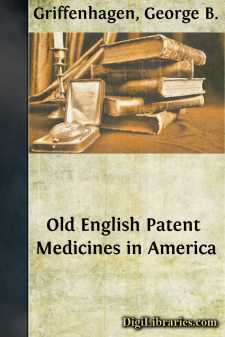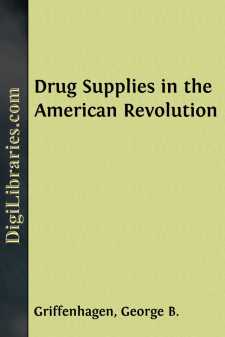Categories
- Antiques & Collectibles 13
- Architecture 36
- Art 48
- Bibles 22
- Biography & Autobiography 813
- Body, Mind & Spirit 142
- Business & Economics 28
- Children's Books 15
- Children's Fiction 12
- Computers 4
- Cooking 94
- Crafts & Hobbies 4
- Drama 346
- Education 46
- Family & Relationships 57
- Fiction 11828
- Games 19
- Gardening 17
- Health & Fitness 34
- History 1377
- House & Home 1
- Humor 147
- Juvenile Fiction 1873
- Juvenile Nonfiction 202
- Language Arts & Disciplines 88
- Law 16
- Literary Collections 686
- Literary Criticism 179
- Mathematics 13
- Medical 41
- Music 40
- Nature 179
- Non-Classifiable 1768
- Performing Arts 7
- Periodicals 1453
- Philosophy 64
- Photography 2
- Poetry 896
- Political Science 203
- Psychology 42
- Reference 154
- Religion 513
- Science 126
- Self-Help 84
- Social Science 81
- Sports & Recreation 34
- Study Aids 3
- Technology & Engineering 59
- Transportation 23
- Travel 463
- True Crime 29
George B. Griffenhagen
George B. Griffenhagen was a distinguished American pharmacist, historian, and author known for his extensive writings on the history of pharmacy and medicine. He authored several influential works, including "History of Drug Containers and Their Labels" and co-authored "History of Pharmacy in the United States." Griffenhagen was also a former director of the American Institute of the History of Pharmacy, contributing significantly to the field with his research and publications. His work remains valuable for those interested in the development of pharmaceutical practices and the role of medicine in society.
Author's Books:
Sort by:
In 1824 there issued from the press in Philadelphia a 12-page pamphlet bearing the title, Formulae for the preparation of eight patent medicines, adopted by the Philadelphia College of Pharmacy. The College was the first professional pharmaceutical organization established in America, having been founded in 1821, and this small publication was its first venture of any general importance. Viewed from...
more...
DRUG SUPPLIES IN THE AMERICAN REVOLUTION by George B. Griffenhagen At the start of the Revolution, the Colonies were cut off from the source of their usual drug supply, England. A few drugs trickled through from the West Indies, but by 1776 there was an acute shortage. Lack of coordination and transportation resulted in a scarcity of drugs for the army hospitals even while druggists in other areas...
more...



